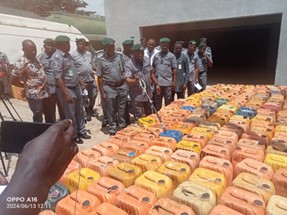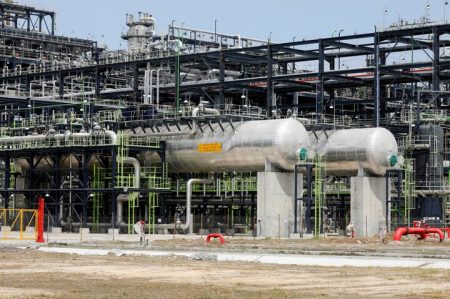 27 December 2012, Sweetcrude, Abuja – More that 70 per cent of mining companies in Nigeria are inactive, according to an audit report by the Nigerian Extractive Industries Transparency Initiative, NEITI.
27 December 2012, Sweetcrude, Abuja – More that 70 per cent of mining companies in Nigeria are inactive, according to an audit report by the Nigerian Extractive Industries Transparency Initiative, NEITI.
The country is losing billions of Naira that should accrue to the federation account from mining because mining regulators are not efficient enough, the NEITI audit report further revealed.
The maiden report, which covers 2007 to 2010, shows that over 70 per cent of mining title holders in Nigeria’s solid mineral sector are inactive companies, causing Nigeria’s government huge revenue losses.
“Mineral titles were issued by MCO (Mining Cadastre Office) to many companies, but only few are paying their annual fees and other fees as stated in Nigerian Minerals and Mining Act, 2007, thereby making the government to lose revenue,” the report noted.
The report prepared by Haruna Yahaya & Co., an independent Chartered Accountants firm, showed that Nigeria’s solid minerals sector is dominated by companies engaging in speculative mining activities.
It also revealed that out of about 3,163 companies granted 1,443 mining titles during the period; only 30 per cent are engaged in active quarry, mining and exploration activities, with illegal miners, medium scale operators and artisan miners the dominant group.
The report focused on four revenue generating sources in the mining industry: royalty payments, ground rents/annual surface rents, taxation, and levies. It also identified ways to curb the huge losses.
According to the report, out of a total of 147 companies/entities audited, only 78, consisting of six cement manufacturing, 44 construction, three minerals buying centres, two each for mining, quarry and sand dredging, were aggregated for the audit population based on their meeting the materiality threshold of N1 million and above.
Total revenue yield from royalties paid by the major players between 2007 and 2010 was N2.2 billion; earnings from ground rents/annual surface rents for the period was about N173.9 million; tax, N51.4 million; and levies N122.9 million, based on the adopted 2002 royalties approved price list by the Federal Ministry of Mines.
The report revealed that government is losing huge revenues from royalty payments on minerals not based on current market valuations.
For instance, the report showed that government was losing an average of N1, 960 and N2, 960 from royalty payment for every ton of granite at the outdated price of N40 per ton. This translates into an aggregated revenue loss of N4.05 billion to the Federation Account arising from price variations in the payment of royalty on granite, laterite and sand by companies.
Though the report noted the existence of adequate regulatory frameworks and policies governing operations in the sector, it identified some areas through which the government has been losing huge revenues in the sector over the years.
How the losses are made
The cadastral office and its appointed officials have no proper way to assess what amount of solid minerals are produced, sold, or consumed by companies, the report stated.
Royalty payments made by the companies are therefore based on what the operators disclose to the regulators. This is similar to what obtains in the oil industry where the Federal Government finds it difficult to determine how much crude is really produced daily, but relies on the figure submitted by the oil procuring companies.
The report also identified dearth of sufficient data about the operators as well as the absence of effective synergy/ collaboration between MCO and the State Offices, which makes it difficult for the regulators to monitor operators effectively.
Other areas identified include the refusal of the operators to file their annual returns with the Corporate Affairs Commission, CAC, as stated by law; which frustrates efforts by government revenue agencies to determine the current amount to be paid by the mining companies.



